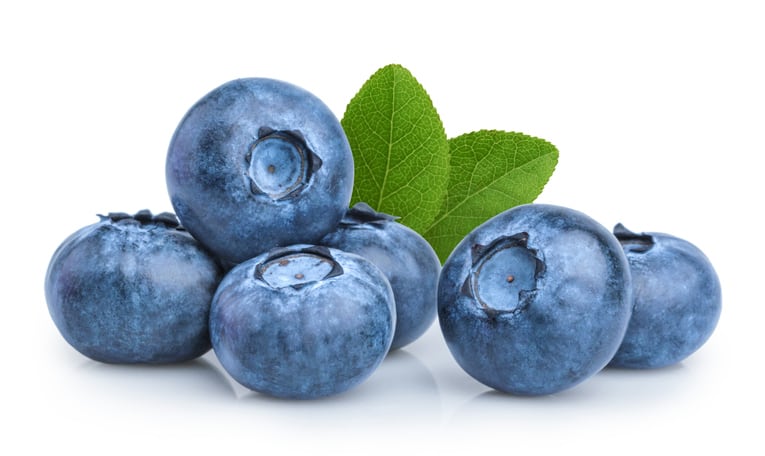Mental ill health is currently one of the leading causes of disease burden worldwide. A growing body of data has emerged supporting the role of diet, especially polyphenols, which have anxiolytic and antidepressant-like properties. Studies that have explored potential associations between nutrient intake (namely carbohydrates, B vitamins and antioxidants such as vitamins C, E and polyphenols) or foods rich in these nutrients (e.g., fruits, vegetables, legumes, coffee, chocolate) and psychological well-being have produced conflicting results.
The aim of the present study, led by researchers from the Queen's University Belfast, was to assess the effect of a high polyphenol diet (HPD) compared to a low polyphenol diet (LPD) on aspects of psychological well-being in the Polyphenol Intervention Trial (PPhIT).
Ninety-nine mildly hypertensive participants aged 40–65 years were enrolled in a four-week LPD washout period and then randomised to either an LPD or an HPD for eight weeks. Both at baseline and the end of intervention, participants’ lifestyle and psychological well-being were assessed.
The participants in the HPD group reported a decrease in depressive symptoms, as assessed by the Beck Depression Inventory-II, and an improvement in physical component and mental health component scores as assessed with 36-Item Short Form Survey.
No differences in anxiety, stress, self-esteem or body image perception were observed. In summary, the study findings suggest that the adoption of a polyphenol-rich diet could potentially lead to beneficial effects including a reduction in depressive symptoms and improvements in general mental health status and physical health in hypertensive participants.
Analysing wellbeing
Aspects of psychological well-being and mental health status were evaluated through several scales and questionnaires that were completed at weeks 0 and 12.
The Positive and Negative Affect Schedule (PANAS) was used for evaluating subjective mood. The questionnaire measures two distinctive dimensions: positive affect (PA) and negative affect (NA).Participants were asked to respond to 10 items representing PA and 10 items representing NA on a five-point scale. Higher scores represent higher positive and negative affect, respectively. This was the only questionnaire assessing psychological well-being that was also completed at week 4, in order to monitor psychological well-being at the end of the washout period.
Depressive symptomology was assessed with the Beck Depression Inventory-II (BDI-II), a 21-item, self-report questionnaire. Each item on the BDI-II has four statements which relate to the severity of a particular depressive symptom, and respondents are asked to choose the one statement which best describes how they have been feeling in the preceding two weeks.
The shorter version (21 items) of the Depression Anxiety Stress Scale (DASS-21) was also completed to measure depression, anxiety and stress. The DASS-21 questionnaire was introduced nine months into the recruitment of the participants. DASS-21 has seven items per subscale and asks participants to rate the extent to which they experienced each emotional state the preceding week using a four-point Likert scale.
The Rosenberg Self-Esteem Scale was used as a global measure of self-esteem. The questionnaire consists of a ten-item Likert scale, completed using a four-point scale from strongly agree to strongly disagree.
Finally, body image satisfaction was assessed through the Multidimensional Body Self-Relations Questionnaire—Appearance Scales (MSRQ-AS), a 34-item validated measure of body image perception. The questionnaire contains a series of statements and asks participants to indicate the extent to which each statement applies to them personally, with higher scores generally indicating greater body image satisfaction.
Mental and physical health were assessed with the RAND Medical Outcomes Study 36-item Short Form Health Survey (SF-36). A total of 36 questions are included in the RAND SF-36 survey and eight key areas are explored in the SF-36 including physical functioning, role limitations due to physical problems, pain, general health, energy/fatigue, social functioning, role limitations due to emotional problems and emotional well-being.
Physical functioning, role limitations due to physical problems, pain and general health were combined to obtain the physical health component and role limitations due to emotional problems, energy/fatigue, emotional well-being and social functioning were combined to obtain the mental health component.
Polyphenol research
A growing number of epidemiological studies support a role for polyphenols in the prevention of chronic non-communicable diseases such as cardiovascular disease (CVD), cancer and neurodegenerative diseases.
Furthermore, animal studies have demonstrated the ability of polyphenols to improve cognitive performance and memory and, more recently, these results have been replicated in human studies.
Regarding mental health, a growing body of data from animal and human studies has emerged supporting the role of a variety of dietary polyphenols in affecting behaviour and mood through anxiolytic and antidepressant-like properties, mediated through multiple molecular and cellular pathways.
Moreover, given that recent studies have demonstrated the pathophysiological role of oxidative stress and inflammation in the onset and progression of depression, polyphenols have been examined both in vitro and in vivo as a potential antidepressant treatment.
Several polyphenol-rich foods have been studied both in observational and intervention studies for potential effects on outcomes related to mental well-being, mood, psychological distress and life satisfaction but results are not consistent.
Source: Nutrients
Kontogianni. M. D., et al
"A High Polyphenol Diet Improves Psychological Well-Being: The Polyphenol Intervention Trial (PPhIT)"





